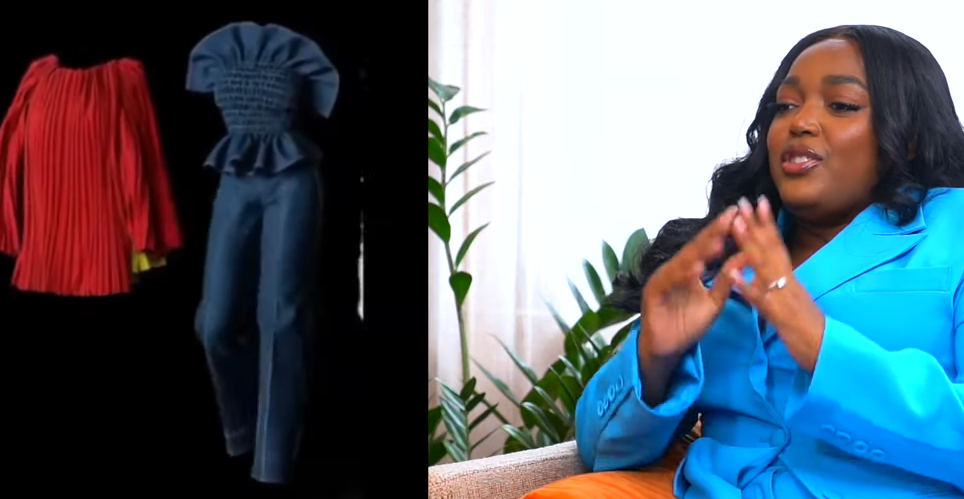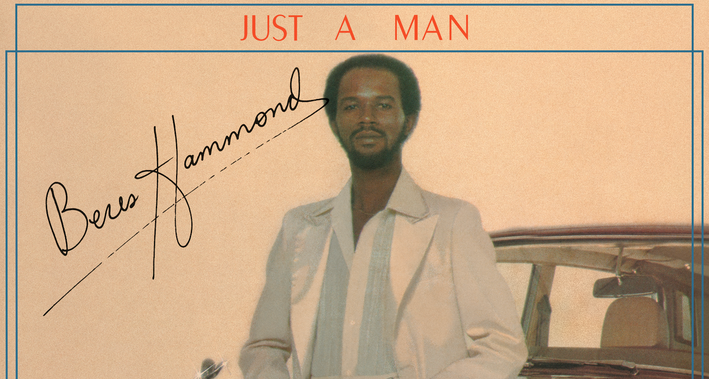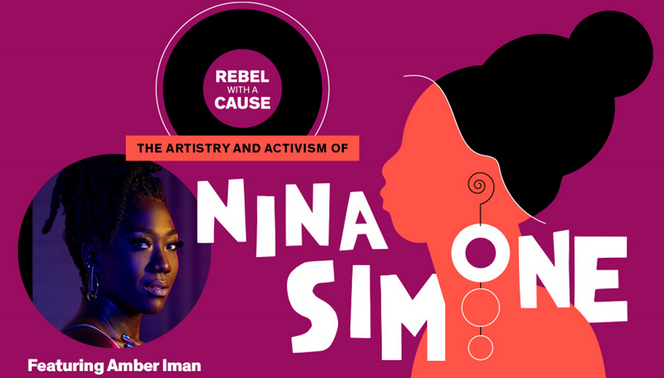Isaiah Washington
[Film]
When you watch “Homegoings” and hear Isaiah Owens the mortician describe death and funerals, suddenly you’re not afraid to die any more. In fact, for a split second, you may even be tempted to wish your day comes sooner so Owens can apply his special tender care to your inert body.
Well; maybe we’re going a bit too far here.
Still, Owens is a magician of the corpse. He applies gentle tender care to bodies of the dearly-departed. No wonder, as the proprietor of Owens’ Funeral Home at 216 Malcolm X Blvd., he’s clearly much-beloved in Harlem, judging by the enthusiastic reaction to the film by the packed-house audience at the Apollo Theater on Friday’s screening.
With “Homegoings” the documentary by Christine Turner, Owens’ may now attain super-star status.
When his name is mentioned even before the film starts, there’s thunderous applause for the mortician. When his name appears on the screen, even before his image is shown, there’s more clapping.
He clearly has many supporters Friday night. Many guests in the house may have dealt with Owens before; presumably when he took care of the bodies of their dearly-departed. There’s so much familiarity that now and then someone from the darkened theater would just shout his name as tribute as if calling out their local corner barber: “Owens!”
The man seems so popular that it’s a surprise that one of New York City’s mayoral candidates hasn’t yet appeared with him at a press conference to announce an endorsement; maybe some have already tried and failed.
Owens took up the craft formally after attending mortician school at age 17 after newly-arriving from the South. He’s been in the business for over four decades now, also operating a South Carolina office. By his reckoning, he’s cared for at least 10,000 dearly-departed.
This is a documentary about the dead: the preparation of their bodies; the funeral services; the mourning; the grief of their families; and, their burials. Yet it’s not a sad film. Strangely, given the topic, it’s very uplifting.
Yes, there’re moments of profound sadness, as when an elderly pastor loses his beloved wife of many years. She’s a fine woman who was a model back in the day, even when it was much harder for African Americans in that industry. The pastor’s children reflect upon his pain; he loved his wife so much.
Now it’s left to Owens to wash the body, to inject it with fluid, and make her look young and beautiful; a cover girl, once again. Owens does his part brilliantly. But, in the documentary, he recalls how he noticed that the pastor looked completely exhausted now that his better half was gone. He’s so tired, in fact, that he too dies the very next day.
Owens ends up handling a double funeral. Even with the pain, the service itself, like all the others, is colorful.
You’ll also never forget Petra’s funeral. She was a beloved Afro-centric vendor in Harlem. Her homegoing was complete with horse-drawn carriage and a marching band and music, with dancing on the great wide streets of Harlem. “Owens Funeral” is emblazoned on the side of the carriage.
“Homegoings” isn’t just a film about the dead and the reflections of their survivors. It’s also homage to Isaiah Owens himself and a narrative history of the Black experience in these United States. Before the screening started, Daniel Roumain, a Haitian-American musician who scored the film, took the stage with his fellow violinist to give guests a flavor of what was to come; and the music was very good. He acknowledged Owens who was in the audience and the mortician was welcomed with standing ovation by some.
Indeed, the gathering of Harlem natives and out-of-town guests was itself as festive as some of the celebration in the film itself. A band played outside right before the screening.
Owens is a man so full of humor that it’s hard to imagine that he can ever be saddened or that he can lose his temper. There’s one scene where he meets with a woman whose still very much alive but wants to plan her departure so as not to be a burden to her family. The whole meeting, with back-and-forth cheerful banter, makes it sound as if the woman is looking for the best deal on a new car, rather than for a casket and tomb stone. Owens confides to her that the one whose inscriptions can be viewed from a distance costs $150 extra.
They also discuss her appearance for the Big Day. What color hair does she want, Owens inquires? Why red, of course, says the woman, whose nickname is also “Red.”
Where did it all start for Isaiah Owens?
He says his first funeral was when he dug a hole as a five year old in Branchville, South Carolina and buried match sticks, covered them, and stuck flowers on the grave. He later graduated to burying dead frogs, dead cats, and dead dogs.
“Anything dead that he found,” his 97 year old mother, Willie May, says.
“Anything except snakes,” Owen agrees.
He readily concedes that people thought he was a mental case as a kid.
“He was messed up,” the mother, who has also already picked out her own casket and written her obituary, says.
She’s also selected Owens to eulogize her; and there’s a backup person in case Owens decides to cheat and depart first. How messed up was Owens? So messed up that he’s turned death into a hugely successful business. He says he gets faxes from people who want to buy him out.
But he has no intention of selling. He wants to keep the business in the family for “200 or 300 years.” Macabre? Hardly; when he makes that declaration in the film, the Apollo audience roars its approval.
In the film, Owens’ wife Lillie recalls how reluctant she was to meet him and date years ago when she learned was he was a mortician. Owens’ sense of humor later disarmed her.
Owens’ son, Chris, admits that while he can handle the bodies as well, he much prefers the “business aspect of the business.” The camera pans on the family as they answer phones, take notes, fill invoices; running a regular business.
There’s no doubt at all that Owens absolutely loves his work. He bathes the bodies, he applies the layers of makeup, and the lip gloss; all with gentle care. He brushes the hair, softly, with the meticulous care of a master chef who’s determined to apply the right amount of ingredients; no more, no less. At one point he moves the hair a little with the brush when it looked like it would partially conceal the deceased’s face. In other words, Owens treats them as if they’re not even dead.
At one point, Owens notes that he’s working on a 98-year-old lady and we get to see her worn face. When the camera shows the end result, you know that Owens could have had a stellar Hollywood career as a makeup maestro.
Owens, who is 62, came to New York City, as he recounts in the film, on the same day that Robert F. Kennedy’s body was being taken by train to Washington, D.C. for burial. He worked in a plastics company in Harlem for some months before he attended mortician school. He then apprenticed with a funeral home owner who later booted him when people started recommending him and she feared he’d steal her business.
There’s so much history and culture and music and celebration in this film that at times you can forget its about death. It captures the African American-, and indeed, African-, tradition of using such departures to celebrate life and historically, when required, to resist oppression. After all, funerals are one of the occasions when people can’t really be blocked from attending.
In South Africa, for example, funeral services for activist murdered by the regime were places where people showed defiance and plotted other actions. Surely some plots must have also been hatched during discussions after deaths on plantations?
This is the one area where the movie is weak and missed a chance to explore, even tangentially.
Many of the enduring songs that have become part of the catalog of the Black experience were developed during slavery when enslaved Africans performed more elaborate services, or “homegoings”, once the plantation owners were out of sight.
Black funeral homes were also the earliest types of businesses that African Americans owned.
Owens notes that since 1968, about 25 Black-owned funeral homes in Harlem have disappeared even as his has remained stable. He says his business did dip by about 65 funerals during the recession. Whereas traditional funerals can range anywhere from $5,000 to $8,000, during the hard times some people preferred cremation.
Isaiah Owens is one of a kind.
It’s sad to imagine that one day, even he too will have his Big Day. Sad because when you see this film you’ll wonder who will ever be able to treat the dead with such love as Owens does.
The film will also be broadcast Monday June 24 at 10PM on PBS’s POV series and you won’t want to miss it.
Director: Christine Turner
Cinematopgraphy: Marshall Stief
Editing: Sonejuhi Sinha
Original Music: Daniel Roumain
The film was supported by: Firelight Media; Upper Manhattan Empowerment Zone







